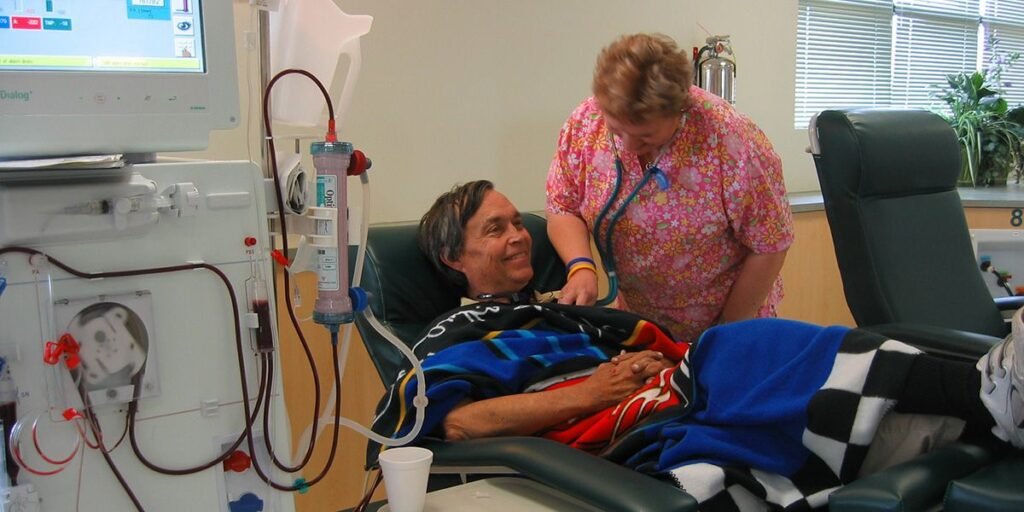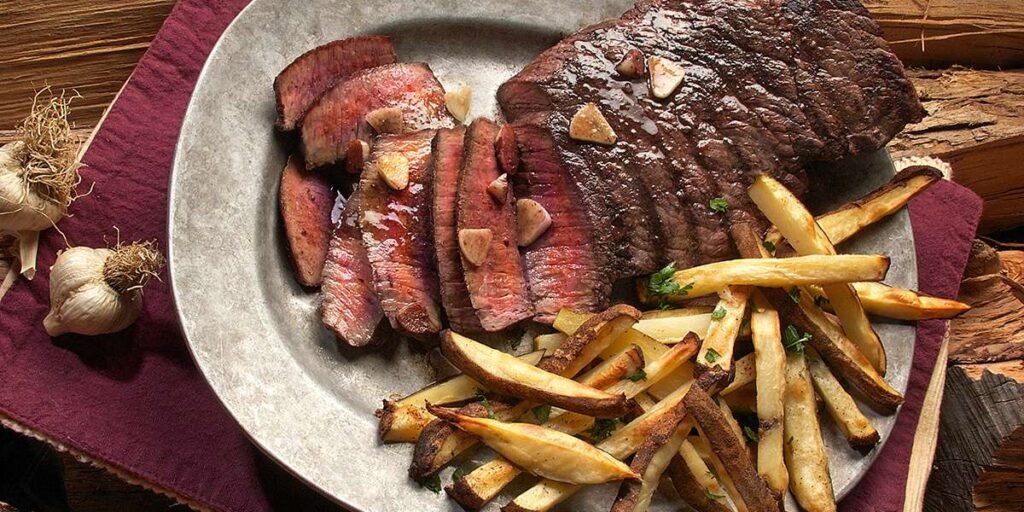
Kidney Dialysis Patients are Prone to Anemia! Diet Should Rich in Iron
When the kidney function of Chronic Kidney Disease (CKD) patients enters stage 4 and 5 (end-stage renal disease), the patient’s kidney function drops below 15% to 30% of normal kidney function, and the patient will have uremic symptoms (Uremia) appear, it is necessary to consider dialysis treatment at this time. The most widely known dialysis treatment is hemodialysis treatment, commonly known as “kidney dialysis”. In addition to receiving kidney dialysis treatment, the patient’s living habits and diet also need to be coordinated to make the treatment more effective. Therefore, this article will introduce the details that kidney dialysis patients need to pay attention to in their diet.
Symptoms of diseases requiring dialysis
In addition to the need for hemodialysis when the renal function enters the fourth and fifth stages, other clinical symptoms that require dialysis are listed below:
- Drug poisoning
- Acute Renal Failure
- Refractory Edema
- Pulmonary Edema
- Metabolic Acidosis
- Hyperuricemia
- Hyperkalemia
- Hypercalcemia
Kidney dialysis anemia diet control principle
It is common for patients who choose kidney dialysis to develop anemia, which will cause fatigue and fatigue, and the ability to exercise will also decrease. Therefore, unlike other kidney patients, patients who choose kidney dialysis need to control anemia. There are four causes of anemia in patients:
- Shortened lifespan of red blood cells
This is the effect of uremic toxins, and hemodialysis is required. - Blood loss during dialysis
About 20 c.c. of blood is lost during each dialysis, and iron supplements should be given, iron-rich foods should be eaten, or blood transfusion should be given. - Vitamin deficiency
Because dialysis will cause vitamin loss, vitamin B group and folic acid should be supplemented every day. - Decreased red blood cell production
Erythropoietin must be given because of decreased erythropoietin.
The American Nephrology Nurses Association (ANNA) recommends that the hemoglobin (Hb) of dialysis patients should be maintained at about 10-11gm/dl, and the hematocrit (Hct) should be the best. Maintain 30% to 35%.
In addition, patients can also control anemia through diet, supplementing more iron-rich foods and supplementing nutrients that help iron absorption and synthesis. For iron-rich foods, you can choose red meat beef, salmon, egg yolk, milk, shellfish, etc. It is recommended to focus on lean meat, avoid high fat and cholesterol, and pay attention to blood phosphorus levels.
In addition, patients can also supplement foods containing vitamin B6, vitamin B12 and folic acid to help the production of red blood cells and hemoglobin in the body, such as spinach, tomato, citrus, guava, lemon and other dark green, yellow and red vegetables and fruits. Vegetables and fruits are mostly high-potassium foods. It is recommended to fry after blanching, and do not keep vegetable soup.
Kidney patients need to supplement protein according to the situation
Some patients worry that taking protein will aggravate their condition, so they choose not to eat protein, but this is wrong! Protein cannot completely not be eaten. If the protein in the body cannot be broken down, it will worsen the condition. Before and after dialysis, the biggest difference in diet is the intake of protein. Before dialysis, protein intake will be restricted to delay the deterioration of kidney function. However, about six to eight grams of amino acids will be lost during hemodialysis. Instead, supplement protein to maintain the concentration of albumin in the blood at least above 4.0g/dl, because protein is the raw material for the growth and repair of the body, and patients with sufficient protein intake have a better prognosis. If kidney dialysis patients implement a low-protein diet, it will cause their own immunity to deteriorate

Generally speaking, you need to consume 1.2 grams of protein per kilogram of body weight, that is, if you weigh 70 kilograms, you should consume 84 grams of protein per day. It is recommended that 2/3 come from animal proteins with high biological value, such as eggs, fish, beef, pork, milk and poultry, etc. Remember not to eat beans, soy re-products, gluten products and dried fruits. These foods contain too much nitrogen waste after metabolism, which is easy to aggravate uremic symptoms. The protein requirement will vary according to the condition, method and frequency of dialysis treatment:
- Normal people
About 1 to 5 grams per kilogram of body weight per day - Poor renal function
(after the third stage of kidney disease) but not receiving dialysis: 0.6 grams per kilogram of body weight per day, less than 30 grams per day. - Peritoneal dialysis patients
There is a lot of protein loss, and a normal protein diet of 1 to 5 grams per kilogram of body weight per day or a high-protein diet can be given. - Hemodialysis patients
There are no special restrictions for those who dialysis more than 3 times a week. It is normal for ordinary people, 1-5 grams per kilogram of body weight per day. For those who dialysis 1-2 times a week, take less than 1 gram per kilogram of body weight per day. If diseases cause severe proteinuria, such as nephrotic syndrome, because protein will be lost in the urine, it is necessary to eat more protein foods with high biological value, such as 0.6 grams of animal protein per kilogram of body weight per day, plus the daily loss of protein.
Related Tops
Diabetes! One of the top ten causes of death in the world
How to Refuse to be a Kidney Dialysis Patient
Understanding of Kidney Disease
Reference
Helpful Organization
Books About Kidney Diseases – Just Click to Buy From Amazon
Chronic Kidney Disease
Per 12 months approximately 1,00,000 sufferers are identified with End level Kidney disease (ESKD) in India. In this book, the author, a widely known Urologist & Kidney Transplant Surgeon training in Navi Mumbai, Maharashtra has defined in an affected person the pleasant way the causes, diagnosis, remedy, and prevention of kidney failure. From diverse diagnostic take a look at…
The Ultimate Guide To Kidney Disease
A comprehensive and detailed guide to understanding, managing, and reversing kidney disease
The fear, uncertainty, and doubt incited by learning that you have kidney disease can be hard. After the preliminary shock, however, you start browsing for important information:
• What is kidney disease?
• What are its silent signs and symptoms? and
• How can it best be dealt with?
Stopping Kidney Disease
Start slowing kidney disease progression today by getting educated on the factors that speed up or slow down kidney disease progression.
Stopping Kidney Disease is the most comprehensive guide to understanding how your kidneys work and how to make your remaining kidney function last as long as possible. Get measurable results in 90 days. Stopping Kidney Disease contains research on all stages of kidney disease newly…
Best Supplement for Kidney – Just Click to Buy From Amazon
Nutracraft KidneyKind
KIDNEY CLEANSE AND SUPPORT – The kidneys come under stress when you are dehydrated, eat a high protein diet, smoke or consume excess alcohol, caffeine or other stimulants. KidneyKind supports kidney and bladder health with a combination of Buchu, Juniper, Uva Ursi, Cranberry, Nettle and more!
Now Food Kidney Cleanse
- Urinary tract support
- Maintains kidney cleansing function
- Blend of herbs traditionally used by herbalists
Cookbooks for Kidney Health – Just Click to Buy
Renal Diet Cookbook For Beginners
Don’t let kidney issues limit your daily life and make you give up the delights of a good meal. A happier, healthier, and tastier life is possible … KEEP READING Are you looking for a kidney-friendly diet with healthy, tasty, and easy-to-follow recipes designed to meet nutritional needs and reduce kidneys’ workload?
Renal Diet Cookbook For Beginners
★ Support Your Kidney Health With The Ultimate Renal Diet Cookbook! ★ Looking for easy-to-follow recipe books that will meet your specific nutritional needs? Are you tired of settling for flavorless kidney-friendly dishes that offer you no satisfaction? Want a renal diet cookbook for beginners to help you control potassium, phosphorus, and sodium levels in your nutrition?
The Ultimate 2023 Kidney Disease Diet Cookbook
Are you susceptible to kidney problems and want a solution? Do you want to avoid using drugs and would rather have a more natural cure? This book provides you with the perfect solution. Kidney problems are among the most common complaints, and millions of us suffer from them every year. At best, they are a nuisance and can impact our daily lives, but at their worst, they can…












